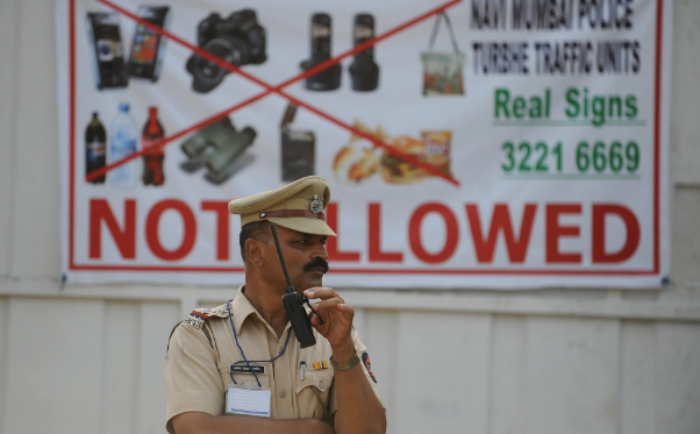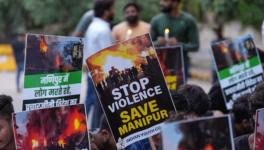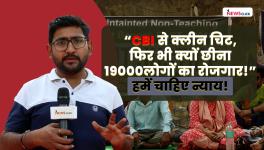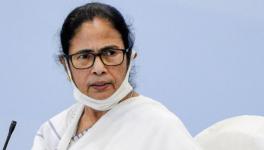Gambler’s Paradise (Part 2): Inadequate Law, Tech Savvy Operations Fuel Illegal Betting, Match Fixing in IPL and Cricket

The multiple seconds delay between live action and TV broadcast gives room for planned placing of bets, based on inputs given from stadiums by agents who enter with multiple communication gadgets.
The 2020 Indian Premier League (IPL) season, set to begin on September 19 in the UAE, has got big players of illegal betting syndicates excited. They expect the amounts involved to be huge this time around with punters, bookies and fixers looking for avenues in a year starved of live action and thereby hot with avenues to bet. The fact that the IPL will be held in and near the hotbed of betting syndicates -- Dubai -- makes things even more lucrative. This, experts say, is something the Board of Control for Cricket in India (BCCI) and the IPL governing council should worry and be wary about.
Also Read | Gambler’s Paradise (Part 1): Betting and Match Fixing Likely to be Higher in IPL 2020
The problem of illegal betting and match fixing is multi layered, partly facilitated by the law itself — or the inadequacy in the law. Of course, the cavalier attitude of the game’s governing bodies, and the unorganised nature of many private tournaments, including Twenty20 leagues run by state units under the BCCI, makes things difficult for law enforcement and the game’s anti-corruption units to keep track and take measures to curb the menace. The problem is systemic, and also stems from the attitude of the organisers, including the Indian cricket board — which has been in the middle of two major match fixing scandals to have rocked the game over the past two decades but still seem unmindful of the threat illegal betting poses to the game and its credibility.
All of these things enable players of illegal betting syndicates to make use of the openings, as well as technology to milk the system and make hay in the shadows.
Indians go Global
The ineffective Public Gambling Act, 1867, has failed to prevent punters from gaming international betting platforms, causing them huge losses. In the past, punters wagering big sums of money on foreign betting websites “subscribed’ to the live “commentary service” and “sub-accounts” provided by bookies for a fee and commission on the earnings. The live commentary provided through closed-loop, private telephone exchanges, set up by bookies and which the punters subscribed to, gave them an advantage of approximately six to seven seconds over “live” television feed allowing them to place bets on betting websites after knowing the outcome of ball-by-ball play before the “in-play” odds could be changed on betting websites. In other words, the punters could place bets in their favour after knowing the outcome.
Read More | Vested Motives Behind Indian Football’s Absurd ‘One City One Team’ Rule
Broadly, there are three types of betting in cricket: on end of play result, on a passage of play and on ball-by-ball play. On legal online betting platforms, registered bookies like the Ladbrokes among others provide the odds. But it’s the ball-by-ball betting that holds the biggest and the most profitable attraction for fixers. This kind of fixing is known as spot-fixing and easier to do compared to fixing the end-result or a passage of play. Spot-fixing can be done with the help of just one or two players. The crux of the 2013 IPL scandal revolved around spot-fixing.
A 2015 Enforcement Directorate chargesheet in an Ahmedabad court highlighted the modus operandi of gaming international betting platforms. “Accused-5 (Ritesh Bansal) disclosed that during the course of every match, one person, ‘Chotu Jalandhar’, used to sit in stadium and provide ball-by-ball details over the phone so that they (bookies) have prior knowledge of (the) actual match proceeding(s) before the same could be viewed by others on TV, which is generally 6-7 second[s] late (sic).” This particular incident, reported in Hardnews, refers to a 2013 IPL game that was played at the Punjab Cricket Association stadium in Mohali, where the “spectator-side commentator” slipped past the police cordon at the entry gate with multiple mobile phones and extra batteries to provide live commentary to the illegal bookies.
These bookies also help establish sub-accounts for punters, allowing them to bet on international websites. This enables punters to bypass restrictions placed on foreign exchange transactions by the Foreign Exchange Management Act, 1999.
The punters pay the bookies in Indian currency, who in turn open a credit line on the betting platforms through their overseas operators. The money is moved either through hawala networks or disguised as business transactions. In case the outcome of the game or a passage of play or ball-by-ball play is fixed, the bookies make windfall gains by wagering against the odds, causing massive losses to legitimate betting operations. It’s amply clear that though betting and fixing are two separate issues, the former’s illegality in India provides a huge incentive for match, block and spot-fixing.
Absence of Legal Framework
Barring the ineffectual provisions of the Public Gambling Act, 1867, the absence of a legal framework within which bookies and match fixers could be prosecuted in a court of law has aided and abetted the explosion of both illegal betting and fixing. None of the high-profile bookies, fixers, players and high-rollers who have been arrested over the years could be prosecuted under any law of the land, because no such law exists. The existing sections and provisions of the Criminal Procedure Code and Indian Penal Code are inadequate for prosecution that could lead to sentencing. “Over the years, Indian courts have repeatedly expressed their inability to convict people involved with fixing despite admitting that the evidence pointed that fixing had indeed taken place,” Neeraj Kumar (who worked as an advisor to the BCCI with its Anti-Corruption & Security Unit) says. Sreesanth and Co. escaped conviction precisely on these grounds.
The former India fast bowler and 40 others arrested in the scandal, including members of the Dawood gang, were acquitted by the Patiala House Court because the evidence failed to meet the legal yardstick required to prosecute the accused under the various provisions of the Maharashtra Control of Organised Crime Act, 1999 (MCOCA), despite Delhi Police filing a 6,000-page chargesheet.
The Supreme Court succinctly summed up the limitation of the existing laws in its March 15, 2019, order for dealing with fixing after Sreesanth appealed against the life-ban handed out by the BCCI (CA 2424 of 2019). “The conclusions drawn by the disciplinary committee of the BCCI on the basis of materials as referred to in paragraphs 12 and 13 of the order cannot be said to be suffering from any infirmity which may warrant judicial review by the constitutional courts.”
Elaborating further, the two-judge bench said, “In a criminal case it is essential to prove a charge beyond all reasonable doubt wherein in disciplinary inquiry under Anti-Corruption Code of BCCI the preponderance of probability is to serve the purpose.” In simple terms, the evidence against Sreesanth (telephone call recordings) was good enough to prove his involvement in fixing, but insufficient to criminally prosecute him. “The conclusions and observations as recorded in the disciplinary committee under Anti-Corruption Code are entirely different from proof of criminal charges which require higher yardstick to prove.”
The legal Catch-22 was first highlighted in the CBI report of 2000. In its detailed conclusion, the investigative agency expressed that little can be done to press charges against the offenders under various provisions of the IPC. “The Legal Adviser/CBI has analysed the provisions of section 120-A IPC dealing with criminal conspiracy and section 415 IPC dealing with cheating and has come to the conclusion that the facts of enquiry in the instant case do not constitute an offence under the aforesaid sections of law. He has also examined the possibility of application of provisions of Prevention of Corruption Act, 1998 and opined that technically a case u/s 13(1)(d)(i) (criminal misconduct) and section 13(1)(e) (disproportionate assets) can be made out against some of the players who are public servants.” It further stated, if at all, charges are brought against Azharuddin and Ajay Sharma under the Prevention of Corruption Act, they would be difficult to sustain in court.
That such legal inadequacy to prevent corruption in sport remains intact even after two decades was acknowledged in the July 2018 Law Commission report, making a case for legalising betting in India. “The transnational character of online gambling platforms calls for a much needed change in approach. With the changing times, there could always be an option to have a relook at the earlier approach of a complete ban,” the report stated. It further stated that regulating betting remains the only viable option. “However, incapability to enforce a complete ban has resulted in rampant increase in illegal gambling, resulting in a boom in black-money generation and circulation. Since it is not possible to prevent these activities completely, effectively regulating them remains the only viable option.”
To have an effective legal betting regime in place would require amendments to a host of other laws that can only be done through Parliament. The list of such laws identified by the Law Commission that need to be amended include the Foreign Exchange Management Act 1999 for allowing Foreign Direct Investment “in the casino/online gaming industry, lawfully permitting technological collaborations, licensing and brand sharing agreements, etc”, Information Technology Act 2000, Information Technology (Intermediary Guidelines) 2011 for hosting and transmitting online gambling content, National Sports Development Code 2011 and Indian Contract Act 1872.
Read More | Goa Decided As Single Venue of ISL, State Government Gives Go Ahead
A natural corollary of legalising betting would be better with specialised policing protocols to eliminate betting frauds and fixing. In the UK, for example, the British Gambling Commission keeps a close watch on the practices of the industry through its investigative arm, the Sports Betting Intelligence Unit. In other countries where betting is legal, similar specialised units are entrusted with the responsibility of weeding out criminal activities of bookies and fixers.
Another lacuna that has facilitated the dizzying growth of illegal betting and fixing in cricket is the absence of any sports fraud prevention laws. In the heat of the 2013 IPL match-fixing scandal, the Prevention of Sports Fraud Bill (2013) was hurriedly drafted by the sports ministry under Vijay Goel. But the two-term Modi government has not displayed any inclination to table the bill in the Parliament for discussion in order to convert it into an act, despite making tall claims about eradicating corruption from all walks of Indian life.
Apart from the 2013 bill, the current Minister of State for Finance and Corporate Affairs, Anurag Thakur, introduced a private members bill on similar lines in 2016, while Congress MP from Thiruvananthapuram, Shashi Tharoor, proposed the Sports (Online Gaming and Prevention of Fraud) Bill in 2018. None of the three bills have been tabled in the Parliament for any discussion. Perhaps, it’s an indication of the extent of seriousness of the Modi government in eradicating match-fixing and illegal betting from India that has earned the country the notorious reputation as the “den of match fixing.”
This lawless Wild East of the global betting and fixing scene has created the most fertile conditions for fake T20 leagues like the one that was busted by the Punjab Police recently. According to Neeraj most privately-owned T20 leagues are organised exclusively for match-fixing and betting. Easy availability of cheap streaming technology has given further fillip to this dark underbelly of cricket in particular, and sports in general. “When we busted the Rajputana Premier League some years ago, arresting more than a dozen people associated with it, we found out that it was organised exclusively with the aim of fixing games and betting,” says Neeraj. Similarly, state T20 leagues like the Karnataka Premier League (KPL) and the Tamil nadu Premier League (TNPL) too have aroused strong suspicions of being a playground for fixers, bookies and punters.
It was incumbent upon the BCCI to carry out a thorough investigation into the murky dealings of team owners in the two state T20 leagues that had come under the scanner. But Vinod Rai’s COA, followed by the current dispensation in power had other priorities. Chief among them was dismantling the Lodha Committee’s recommendations, bound by the Supreme Court’s order, thread-by-thread so that more things change, more they remain the same.
In the meantime, as the drum-rolls of India’s greatest gift to cricket—the IPL—become louder by the day, the ringing of cellphones of the bookies and fixers will become fainter, until the next big scandal hits the headlines. And, as they say, the show must go on.
(The author, former managing editor of Sports Illustrated India, is an independent journalist based in New Delhi)
Get the latest reports & analysis with people's perspective on Protests, movements & deep analytical videos, discussions of the current affairs in your Telegram app. Subscribe to NewsClick's Telegram channel & get Real-Time updates on stories, as they get published on our website.
























